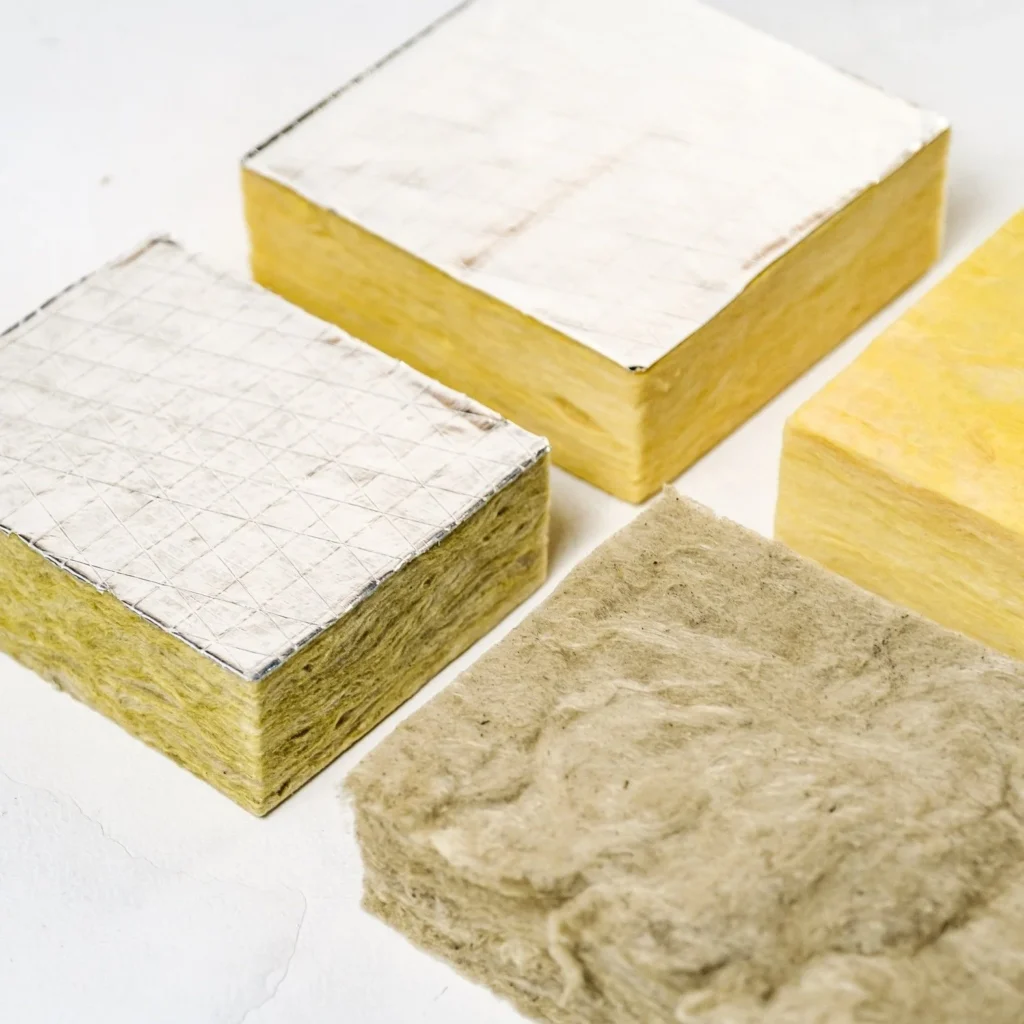
What is the Composition of ROCKWOOL?
ROCKWOOL, also known as stone wool, is a highly durable and versatile insulation material used for thermal, acoustic, and fire-resistant applications. The composition of ROCKWOOL plays a crucial role in its performance, making it an ideal choice for a variety of construction and industrial uses. Understanding what goes into the creation of ROCKWOOL can help you appreciate why it offers such superior benefits in insulation.
1. Basalt Rock (Volcanic Rock)
The primary component of ROCKWOOL is basalt rock, a natural and abundant volcanic material. Basalt is chosen for its high melting point and ability to withstand extreme temperatures. The process of making ROCKWOOL begins with melting basalt rock at temperatures around 1,600°C (2,912°F) in a furnace. The rock is then spun into fine fibers, forming the insulation material.
- High Melting Point: Basalt rock’s natural ability to withstand extremely high temperatures contributes to ROCKWOOL’s excellent fire resistance.
- Natural Abundance: Basalt is a plentiful resource, making ROCKWOOL a sustainable and eco-friendly option.
2. Limestone
Limestone is often included in the composition of ROCKWOOL as a secondary ingredient. It is used in the production process to help regulate the viscosity of the molten rock and ensure that the material fibers form properly.
- Viscosity Control: The addition of limestone helps in the formation of the fine fibers necessary for insulation.
- Durability: Limestone contributes to the overall strength and durability of the ROCKWOOL material.
3. Cement
Cement is sometimes used as part of the binder material in certain ROCKWOOL products. It helps to solidify the fibers and bind them together, ensuring the material maintains its shape and effectiveness as insulation.
- Binder: Cement acts as a binder to keep the stone wool fibers in place, ensuring stability and consistency in the final product.
4. Recycled Materials
Many ROCKWOOL products also incorporate recycled materials, including glass, slag, and other industrial by-products. These materials are often sourced from other manufacturing processes, which helps reduce waste and makes the production process more sustainable.
- Eco-Friendly: The inclusion of recycled materials helps minimize environmental impact and supports a circular economy.
- Improved Performance: Recycled glass, for example, can enhance the strength and insulating properties of the ROCKWOOL product.
5. Water and Other Additives
During the production process, water is added to the fibers to help in the spinning process. Additionally, small amounts of chemical additives may be used to enhance the properties of ROCKWOOL, such as improving moisture resistance or flexibility, or to reduce dust during handling.
- Water: Water is used during the fiber-forming process to aid in the spinning of the rock fibers.
- Additives: Specific additives may be used to enhance features like fire resistance, flexibility, or mold prevention.
6. Binder Resins
To keep the fibers in place, binder resins are used in the final stages of the production process. These resins help hold the fibers together and maintain the integrity of the material over time, even under heat or pressure.
- Consistency: Binder resins ensure that the fibers remain in place, providing reliable insulation properties over the life of the material.
The Process of Making ROCKWOOL
The process of making ROCKWOOL involves several steps that transform raw materials into a final, usable insulation product:
- Melting: Basalt rock (and sometimes limestone) is melted at high temperatures to form molten rock.
- Spinning: The molten rock is spun into fibers, similar to how cotton candy is made, resulting in long, thin fibers of stone wool.
- Binding: The fibers are then bound together with resin and cement to form a solid, cohesive material.
- Shaping: The material is then shaped into batts, rolls, or slabs, depending on the application.
- Curing: Finally, the insulation is cured to ensure durability and strength.
Why is the Composition of ROCKWOOL Important?
The composition of ROCKWOOL gives it several important properties that make it a superior insulation material:
- Fire Resistance: Basalt rock’s high melting point and non-combustible nature make ROCKWOOL extremely fire-resistant, a key benefit in protecting buildings from fire.
- Thermal Insulation: The fibrous structure of ROCKWOOL traps air, providing excellent thermal resistance and helping to maintain consistent temperatures in buildings.
- Sound Insulation: The dense structure of ROCKWOOL fibers also helps in soundproofing, reducing noise transfer between rooms or from external sources.
- Moisture Resistance: ROCKWOOL’s natural resistance to moisture means it does not absorb water, helping to prevent mold and mildew growth.
- Sustainability: The use of natural, abundant materials like basalt, along with the inclusion of recycled materials, makes ROCKWOOL an environmentally friendly choice.
Conclusion: The Strength of ROCKWOOL’s Composition
The composition of ROCKWOOL makes it an exceptional insulation material for a wide variety of applications. From thermal and acoustic insulation to fire protection and moisture resistance, the combination of basalt rock, limestone, recycled materials, and specialized additives ensures that ROCKWOOL offers superior performance. Its eco-friendly, fire-resistant, and long-lasting properties make it a preferred choice for both residential and industrial insulation.
If you’re looking for reliable, high-performance insulation, ROCKWOOL might be the perfect solution for your project. Explore our range of ROCKWOOL products to find the right option for your needs.